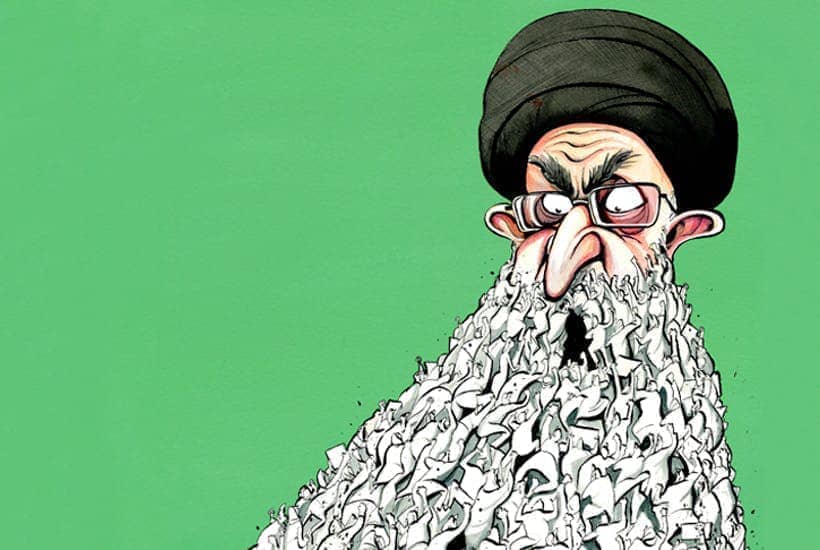There was a picture taken on Tuesday that says more than just a thousand words. The photograph was snapped in Sharm el-Sheikh and shows Abu Dhabi Crown Prince Mohamed bin Zayed Al Nahyan and Israeli Prime Minister Naftali Bennett seated either side of Egyptian president Abdel Fattah el-Sisi.
According to the Egyptian president’s office, they met to discuss ‘the repercussions of global developments, especially with regard to energy, market stability, and food security’ but ‘they also exchanged visions and views on the latest developments of several international and regional issues’. That’s a very wordy way of saying ‘Iran’.
Obama and Biden’s foreign policies are indistinguishable
Iran is what this meeting was about and specifically about putting on a united front as Washington endeavours once more to reach a deal to prevent a nuclear Iran. Israel, Egypt and the Emiratis are alarmed because nothing that has been heard so far from these latest talks (and that is not very much at all) suggests the United States has learned its lesson from the initial Iran deal, the Joint Comprehensive Plan of Action (JCPOA).
That agreement, struck in 2015, was hailed by the Obama administration as a victory for peace and stability. Obama assured Americans the deal would ‘make America and the world safer and more secure’ and that the alternative was ‘some sort of war’. But as I’ve noted previously on Coffee House, the original Iran deal was so weak that the Iranians boasted they could start building a bomb before the deal expired.
Obama and Biden’s foreign policies are indistinguishable. Perhaps that’s to be expected with the same staffers, same fixations and same pandering to the nutty Democratic Party base. The presidents have become truly indistinguishable, right down to Biden’s campaign to resurrect his old boss’s pact on Iran, nixed by Donald Trump in 2018.
While the full details of the talks are not yet known, the US and EU are doing the same thing they did in 2015: trading security for the false peace of mind of a nuclear framework that places only modest obligations on Tehran and even then ones that will only delay, not prevent, Iran going nuclear. Some sweet commercial opportunities with the Islamic Republic help too. The deal will legitimise Iran’s nuclear actions, not destroy them. Find yourself someone who looks at you like the US State Department looks at a belligerent theocracy where ‘Death to America’ is the unofficial national motto.
The acquiring by Iran of nuclear weapons would fortify a dangerous regime, imperil peace and retrench US influence in that part of the world. It would represent a major victory for the authoritarian, anti-western alliance and in particular Russia, Iran’s mentor. As long as the US continues to approach a strategic threat as though it were a diplomatic conundrum, it will continue to embolden its enemies and dismay its allies.
Israel and the Gulf states are more than dismayed. They are terrified of Iran getting the bomb and frustrated with the US and the EU, to whom they are expected to remain reliable allies. The sight of Israeli and Arab or Muslim leaders working together (and, it’s said, enjoying not only workmanlike but friendly relations) still has the power to surprise. Forty-three years after Israel and Egypt signed their peace treaty, a new Middle East is shaping up that would be unrecognisable to Menachem Begin and Anwar Sadat. The ties forged by the Abraham Accords (and the other ties no one is yet ready to acknowledge publicly) are not the happy-clappy peace of liberal universalism but a hard, canny alliance of mutual threats and shared interests.
The Israel-Gulf Arab bloc is said to want security guarantees from the US should Iran fail to abide by the terms of any future nuclear deal. The urgent western need for oil will ensure such guarantees are forthcoming, but whether they are honoured is another matter. US promises of security aren’t what they used to be. So the Abraham alliance might offer a model to Washington’s other neglected allies: when America no longer has your back, it’s time to make new friends.







Comments